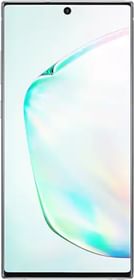Sticking to tradition, Google has itself come forward and previewed the Pixel 6 series phones ahead of the official launch. Yeah, there are two smartphones namely the Pixel 6 and Pixel 6 Pro. The bigger Pixel carries the Pro surname, not Plus as some reports had claimed earlier. The design and several other details of the devices match the rumors and leaks we had got to date. This includes the whispers of Google coming up with its own SoC (system-on-a-chip) codenamed Whitechapel. Well, now it is formally called Tensor. Google has detailed a fair bit about this upcoming chip during the recent announcement of the Pixel 6 lineup.
First of all, if that name rings any bell, it is because Google calls the machine learning (ML) processors used in its cloud server farms/ data centers as Tensor Processing Units. And it has a neural network language called TensorFlow.
Having that out of the way, let’s see why Google Tensor SoC could be a gamechanger.
What is Tensor SoC: Everything we know so far
Tensor is a system on chip from Google, believed to be co-developed with Samsung¹. The company hasn’t revealed the complete specs of Tensor yet. Still, at the core, it is expected to be an octa-core, 5nm ARM-based chip. And besides the CPU, there would be a GPU (of course), TPU (for neural processing), 5G modem, and Titan M security chip, among other components. There have been some rumors of Google using AMD graphics in one or the other Whitechapel SoC. There is no corroborative evidence though.
So, some of these components could be licensed from other industrial players like Qualcomm. Since Google’s Tensor announcement, Qualcomm has said that they will be working closely on current and future products.
In an interaction with The Verge², Google’s SVP, Devices, and Services, Mr. Rick Osterloh said, “It’s definitely very different than just another co-processor. Like with any SoC, we license a lot of technology into it, but this is our design and it was designed specifically with the purpose of driving our ML and AI forward.”

From this it seems, he is taking a dig at Apple’s Neural Core (within iPhones) unlike which the Tensor will have AI as an essential part of the Pixel 6 series and forward.
He further adds, “The computers of the future are becoming much more heterogeneous than they have in the past. There’ll be a lot more specialized sub-elements to the design to be able to do things in specific ways. This is a consequence of raw computing power running out of headroom or growing more slowly than the kinds of processing we want to do with AI”.
ALSO READ: Google One Plans in India: How to buy extra cloud storage for Google Photos
By this, he is alluding that it is time for AI within phones to surpass the underlying hardware limits. How long before the chip components can no longer be minified. This is a concern for not just Google, but the entire smartphone, PC, and technology industry.

To explain what I believe Google is going for, I need to digress a bit. But, bear with me.
Historically, the annual improvements in CPU performance have been slowing down at around 30%, which is lower than the optimal 40% value as per Moore’s Law. This axiom, which for the unversed, states, with every new generation, the transistor density of CPUs would double, resulting in about 40% faster clock speeds, while keeping power draw constant. That isn’t happening anymore.
However, the chip kingpins that have been coupling CPUs with alternative co-processors are catapulting at a rate of more than 100% annually. This includes Apple’s A-series processors used in iPhones and iPads, which have dedicated processors for tasks such as facial recognition, speech recognition, LIDAR, AR, and 3D imaging.
Differently put, Moore’s Law might not be dead, AI and ML are being used as alternative workarounds.

Now, coming to Tensor and Pixels, Google has thus far showcased a few demos —
- Auto sharpen blurry or hazy photos using data from multiple sensors, multiple clicks, and computational photography
- Better HDR capabilites in videos (using HDRnet that was previously available for still photos only)
- On-device and offline speech to text translation as well as quicker and more accurate real-time auto-captioning for videos
- Speaking of quicker and accurate, Google Search and Google Assistant would also gain in these respects.
- Tensor is claimed to be secure thanks to it’s new security core and Titan M2 chip
- An “always-on computer” that will perform low-intensive processes such as the ambient display
- And as TPU take care of many of such workload, other chips in the system would be free for more performance
As you see, the data used in many of these Tensor computations are likely to stay mostly in the phones themselves. This, as you may know, is edge computing and opens up avenues for the Internet of Things (IoT) applications.
ALSO READ: How to get Google Workspace suite for free
Speaking of AIoT, Google could use variations of Tensor SoC in its other present and forthcoming products like Chromebooks, Pixel Tabs, Pixel Watches, Nest devices, etc.
But more importantly, as Osterloh puts, “The product is really, now, The Google Phone. So we are ready to invest a lot in marketing and we want to grow. If things pan out as Google is claiming, we could finally see a flagship-grade phone from Google after years of lukewarm Pixels with one or the other issues.
Here’s what the new Pixels will feature beside the Tensor processor —
Google Pixel 6 and Pixel 6 Pro Specs
The confirmed details are the phones’ key display specs and the design. The Pixel 6 Pro will sport a 6.7-inch QHD+ screen with a 120Hz refresh rate and subtle curve by the edges. The chassis is shielded by shiny aluminum rails on the side.
By the back, the Pro model is housing three cameras including a primary sensor, an ultrawide, and a 4X zoom telephoto lens. Google tells the primary sensor captures 150% more light. Other details about the cameras are still kept under wraps though.
ALSO READ: Google Pixel 6 series likely to get 5 Years of Android Updates
Meanwhile, the standard Pixel 6 will flaunt a smaller 6.4-inch flat panel with FHD+ resolution and a 90Hz refresh rate. This one doesn’t have a telephoto sensor. The frame has got a matte finish.
Other rumored details:
| Model | Google Pixel 6 | Google Pixel 6 Pro |
| Display | 6.4-inch FHD+ AMOLED 90Hz display | 6.7-inch Quad HD+ curved pOLED 120Hz display |
| Processor | Tensor SoC with Titan M2 security chip | Tensor SoC with Titan M2 security chip |
| Memory | 8GB RAM, 128GB / 256GB storage | 12GB RAM, 128GB / 256GB / 512GB storage |
| Software | Android 12 | Android 12 |
| Rear Camera | 50MP rear camera, 12MP Ultra-wide camera | 50MP rear camera, 12MP Ultra-wide camera, 48MP telephoto camera with up to 4x optical zoom |
| Front Camera | 8MP | 12MP |
| Connectivity | Dual SIM (nano + eSIM), 5G SA/NA, 4G VoLTE, Wi-Fi 6E 802.11ax (2.4/5 GHz), Bluetooth 5.2 LE, GPS, USB Type C 3.1 (1st Gen), NFC | Dual SIM (nano + eSIM), 5G SA/NA, 4G VoLTE, Wi-Fi 6E 802.11ax (2.4/5 GHz), Bluetooth 5.2 LE, GPS, USB Type C 3.1 (1st Gen), NFC |
| Battery | 4614mAh battery with fast charging | 5000mAh battery with fast charging |
| Misc. | In-display fingerprint scanner, USB Type-C audio, Stereo speakers | In-display fingerprint scanner, USB Type-C audio, Stereo speakers |
Google Pixel 6 and Pixel 6 Pro Price and Availability

These are the countries wherein the Pixel 6 series has been listed² in the Google Store. The Pixel 6 and the Pixel 6 Pro are due for release in October of 2021:
- Australia
- Canada
- France
- Germany
- Japan
- Taiwan
- United Kingdom
- United States
As you see India isn’t part of this list. Although Google hasn’t officially spilled any beans regarding the availability of the Pixel 6 series in India yet. In the past, the internet giant has skipped the country a few times. So, the Pixel 6 and Pixel 6 Pro may or may not come to India. If it comes, then it will have to address the customer service situation (which has been historically a challenge for it) and the stiff competition in the market.
Anyways, as far as price is concerned, this should give you a hint —
“We’ve definitively not been in the flagship tier for the past couple of years, this will be different. it will certainly be a premium-priced product,” says Osterloh. So, what do you think? Will Google finally challenge the likes of Apple, Samsung, and OnePlus for the crown of the flagship turf?



























